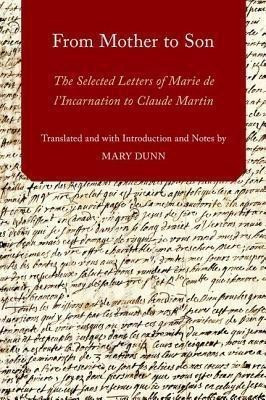From Mother to Son(English, Hardcover, unknown)
Quick Overview
Product Price Comparison
Marie de l'Incarnation (1599 - 1672), renowned French mystic and founder of the Ursulines in Canada, abandoned her son, Claude Martin, when he was a mere eleven years old to dedicate herself completely to a consecrated religious life. In 1639, Marie migrated to the struggling French colony at Quebec to found the first Ursuline convent in the New World. Over the course of the next thirty-one years, the relationship between Marie and Claude would take shape by means of a trans-Atlantic correspondence in which mother and son shared advice and counsel, concerns and anxieties, and joys and frustrations. From Mother to Son presents annotated translations of forty-one of the eighty-one extant full-length letters exchanged by Marie and her son between 1640 and 1671. These letters reveal much about the early history of New France and the spiritual itinerary of one of the most celebrated mystics of the seventeenth century. Uniting the letters into a coherent whole is the distinctive relationship between an absent mother and her abandoned son, a relationship reconfigured from flesh and blood to the written word exchanged between professed religious united in Jesus Christ as members of the same spiritual family. In providing a contemporary translation of Maries letters to Claude, Mary Dunn renders accessible to an English-speaking readership a rich source for the history of colonial North America, providing a counterpoint to a narrative weighted in favor of Plymouth Rock and the Puritans and a history of New France dominated by the perspectives of men both religious and secular. Dunn expertly contextualizes the correspondence within the broader cultural, historical, intellectual, and theological currents of the seventeenth century as well as within modern scholarship on Marie de lIncarnation. From Mother to Son offers a fascinating portrait of the nature and evolution of Marie's relationship with her son. By highlighting the great range of their conversation, Dunn provides a window onto one of the more intriguing and complicated stories of maternal and filial affection in the modern Christian West.


